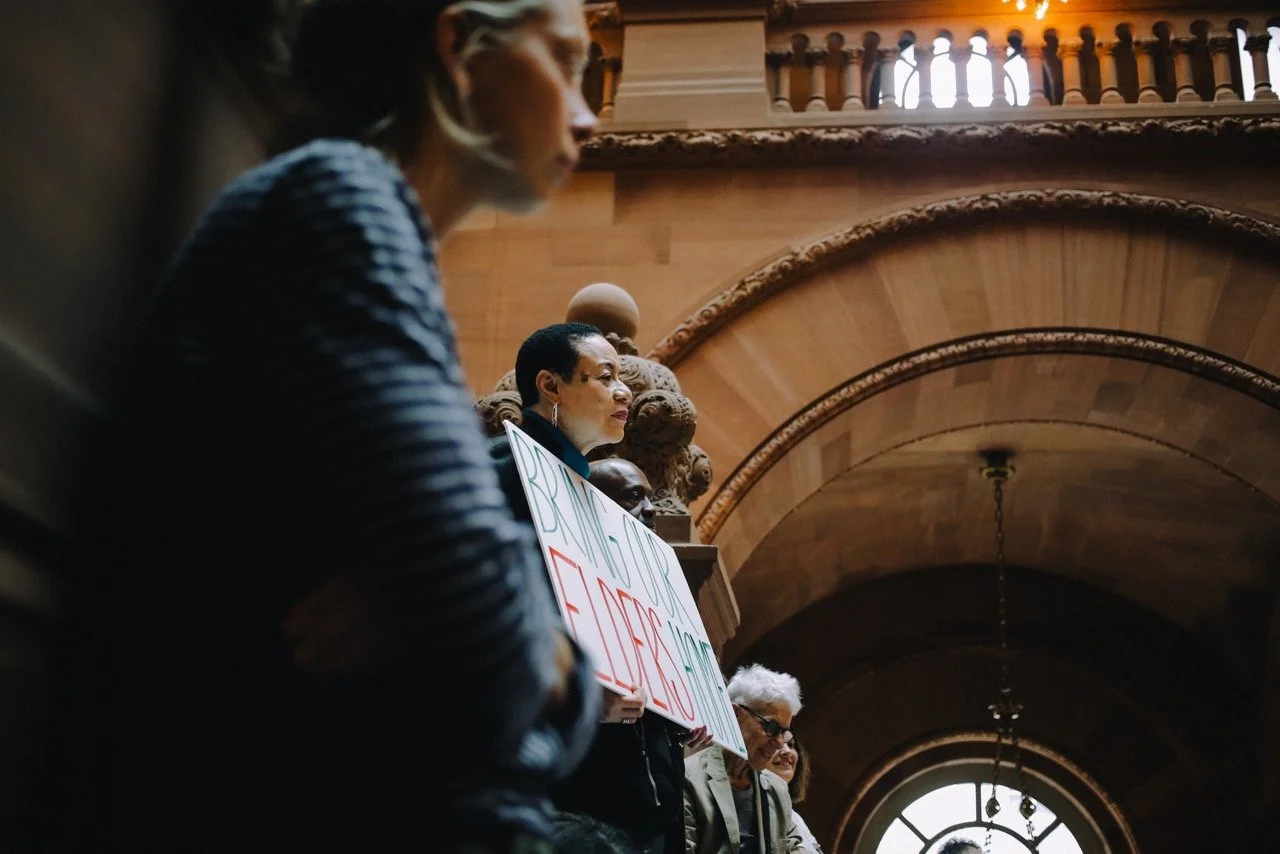Opinion: Justice means more than punishment
/File photo via RAPP
By David Long
Many longtime New Yorkers talk about surviving the bad old days of our city as a badge of honor, but no one wants to go back to that era. At the same time, there’s broad consensus that many of the policies relating to law enforcement and sentencing from the 80’s and 90’s need to be reevaluated because they were at times wrong, costly, and even ineffective.
As a former NYPD officer who served in the transit system during that troubled era, I don’t take crime lightly. Part of my post-policing career has been in promoting safe opportunities for people to live in the community after being arrested, so I also know that incarceration isn’t the cure-all many want it to be.
In politics, where you need 51 percent of the vote to win anything, it makes good sense to divide the world around you into two opposing sides — say, “tough on crime” vs “reformer” — and align with whichever side is more popular in the moment. But for good policy, you have to think more deeply.
As we peel back the layers of mass incarceration, it’s important that we act carefully so we don’t solve one problem by creating another. Thankfully, we have more enlightened approaches now, informed by decades of research and the insights of crime survivors, formerly incarcerated people, and other experts.
Part of the solution lies in changing our parole release system to promote more rigorous and more fair reviews of people seeking to return home and ensuring that people who have turned their lives around while incarcerated get a fair shot. Two bills pending in New York’s Legislature, Fair & Timely Parole and Elder Parole, would do just that and lawmakers should enact them this year.
Under current law, many New Yorkers in prison have no chance of ever reuniting with their families and communities, no matter how much they have matured and transformed. This system of endless punishment comes at great cost and all the data show that it doesn’t make us safer. Its sole purpose is to satisfy the insatiable: our hunger for vengeance.
Real accountability means more than just punishment. It means transforming your behavior. That should be at the heart of any quest for justice.
Just listen to some of the crime survivors who’ve pleaded in these pages: They want to be heard — and they want safety and healing, not harsh punishment.
To be clear, neither bill would guarantee anyone’s release. But, on a case-by-case basis, people in prison would have a chance to demonstrate whether they are ready to return to the community — or not. They would have something to strive for.
Throughout my career, I have met and worked with hundreds of people doing important work to serve our city after spending years in prison, and I see the positive impact they have.
Enacting these bills would help to reunite families, bring home mentors, violence interrupters, drug recovery counselors, and more, and enable the state to reinvest half a billion dollars per year in what truly works to end cycles of violence. That means more and better housing, health care (including mental health care and drug treatment), support for crime survivors, and other essentials.
We all know some pundits will cry “soft on crime” but again, they’re relying on a false premise. Beating our chests and acting tough only gets us so far. We need lawmakers to be laser-focused on actually improving safety and that means building a justice system that values personal transformation and making investments in the pillars of true public safety, namely healthy, whole, and well-resourced communities.
Governor Kathy Hochul, Senate Majority Leader Andrea Stewart-Cousins and Assembly Speaker Carl Heastie: Let’s get to work. Enact Fair & Timely Parole and Elder Parole this year.
David Long is the Executive Director of the Liberty Fund and a former NYPD police officer.




